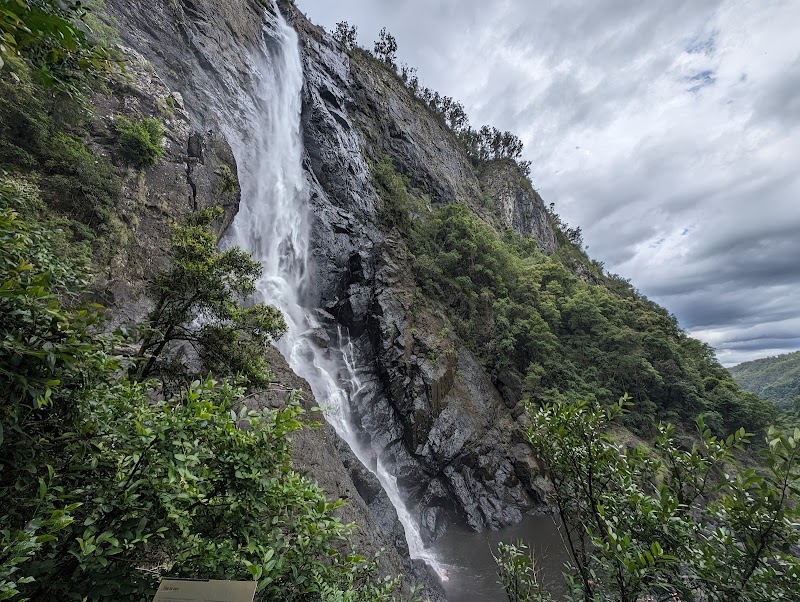
Forster Triathlon: Navigating Water, Wheels, and Road in NSW’s Coastal Gem
The Forster Triathlon offers athletes a robust blend of swim, bike, and run stages set against the rugged beauty of New South Wales’ Mid North Coast. Fiercely engaging but accessible, this event challenges every level of adventurer with its unique coastal elements and dynamic course.
Master Your Transitions
Practice smooth switchovers between swim, bike, and run to shave crucial seconds and maintain momentum.
Hydrate Strategically
Coastal air speeds dehydration; drink regularly before and during the race to avoid fatigue.
Choose Grip-Friendly Footwear
Run shoes with good grip and bike tires suited for mixed surfaces help maintain speed and safety.
Monitor Weather and Tides
Check tide charts and weather updates for the best race-day preparation and optimal pacing.
Forster Triathlon: Navigating Water, Wheels, and Road in NSW’s Coastal Gem
The Forster Triathlon in Forster, New South Wales, offers an invigorating blend of natural energy and physical challenge along the Mid North Coast. This race weaves through a course designed for all adventurers—from first-timers eager to tackle their first triathlon to seasoned competitors testing their limits by the sea. Expect a swim across the cooler waters of Wallis Lake, a bike course demanding sharp focus on coastal roads, and a run that pushes you alongside the ocean’s persistent energy.
The swim stage covers approximately 1.5 kilometers, starting on calm but spirited waters where Wallis Lake dares each swimmer to move forward. Its surface often ripples with a brisk current that flexes but rarely overpowers, encouraging stroke and breath control. Transitioning to the bike segment, participants tackle roughly 40 kilometers of rolling terrain. The coastal road rolls beneath your wheels with a surface that’s generally smooth but presents the occasional patch of grit and tight bends, requiring steady handling. Eucalyptus trees edge the road, releasing a sharp scent that mixes clean air with a hint of earth, almost urging cyclists to press on.
The final leg is a 10-kilometer run that tests endurance against the ocean’s rhythmic push. The course follows Forster’s foreshore—boardwalks, sandy stretches, and pavement—making footing varied and demanding awareness. The sea breeze is almost tactile here, brushing against your face and reminding you that each step is as much an engagement with nature as it is a race against the clock.
Preparation is key. Hydration strategies must reflect the race’s coastal elements; salty air can accelerate dehydration. Shoes with firm grip and breathability will handle the mixed surfaces from pavement to boardwalk to trail. Timing your effort against tides and weather forecasts can tip the balance from merely completing to thriving. Early entries often note that the morning start offers cooler temperatures and calmer waters—critical for setting a strong pace.
Finishing the Forster Triathlon means more than crossing a line. It is about embracing a challenge fiercely itself: water that flows and tests, roads that wind and demand skill, and a run course that rewards those attentive to rhythm. Forster’s natural elements are more than background—they actively engage with every participant, making this event an adventure with a practical, driven edge.
Whether you’re here for the sport, the sense of community, or the vivid coastal environment, the Forster Triathlon is designed to engage all senses and skills. The experience can galvanize newcomers to triathlon while providing veterans a stage to sharpen abilities, surrounded by the wild yet approachable Australian coastline.
Nearby Trips
All Adventures
Boat Charters
Water Activities
Adventures near Forster, New South Wales
Discover the unique and memorable adventures that make Forster, New South Wales special.
Frequently Asked Questions
What is the water temperature typically like for the swim stage?
Water temperatures in Wallis Lake generally range from 18°C (64°F) in cooler months to around 24°C (75°F) in summer, making wetsuits recommended outside peak summer months for warmth and buoyancy.
Are aid stations available along the bike and run courses?
Yes, several hydration points are strategically placed to keep athletes fueled and hydrated, especially critical during summer heat or intense race conditions.
Is the Forster Triathlon suitable for beginner triathletes?
Absolutely. While the courses require a moderate fitness level, the event welcomes newcomers, and plenty of support is provided on race day, including safety crews and pacing tips.
Are there any road closures or traffic considerations during the event?
Key segments of the bike and run courses may have partial road closures or traffic control; however, awareness and cooperation with local authorities keep race safety at the forefront.
Can spectators access all parts of the course?
Spectators have designated viewing areas primarily near the swim start, transition zones, and along popular stretches of the run, with clear signage and marshals facilitating safe access.
What wildlife might I encounter?
Birdwatchers might spot pelicans, sea eagles, and occasionally dolphins in the bay. Marsupials such as wallabies live inland, though they tend to stay clear of populated race areas.
Recommended Gear
Open Water Wetsuit
Keeps swimmers warm in cooler Wallis Lake waters and provides buoyancy.
Cycling Helmet
Mandatory for safety during the 40km bike stage on public roads.
Trail-Ready Running Shoes
Offer grip and shock absorption on mixed surfaces along the run course.
Electrolyte Hydration Packs
Help maintain electrolyte balance during hot, humid conditions.
Local Insights
Hidden Gems
- "Booti Booti National Park trails just outside Forster provide an alternative post-race recharge with lush forests and scenic lookout spots."
- "The quiet Fishing Platform hidden near the southern shore offers a peaceful vantage to watch race swimmers enter and exit the water."
Wildlife
- "Eastern Sea Eagles patrol overhead along the lake and ocean margins."
- "Australian Pelicans with their curious postures often rest near the edges of the lake."
History
"Forster developed as a fishing and holiday town in the mid-20th century with strong ties to indigenous Worimi heritage, reflected in local cultural sites and respect for natural environments."
